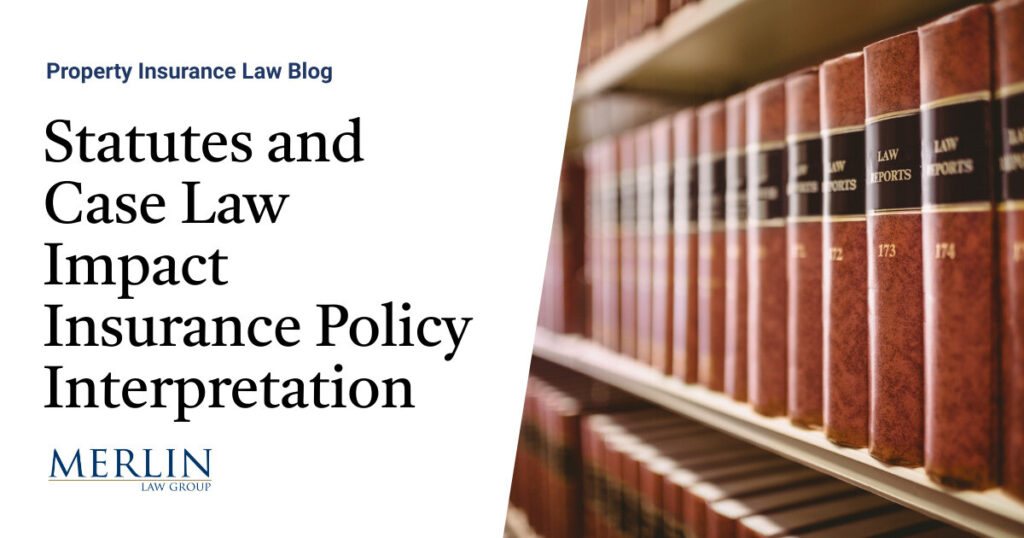Statutes and Case Law Impact Insurance Policy Interpretation

The post: “Do Typical Insurance Appraisers Follow California Code of Civil Procedure 1282.2?” led to an interesting comment from an experienced Florida public adjuster, Bill Cook:
How does the required code apply when the two appraiser are able to negotiate a resolution absent umpire involvement in accordance with policy provisions? Should parties be required to incur the cost of compliance? Does California law trump the written contract provisions of the policy?
When interpreting insurance policies, I always teach others to first read and understand the policy language. This is not an easy process. There are treatises from the insurance industry explaining what the policy words mean. It can take years to read all of those treatises, but at least you get an understanding of what the insurance industry may have been trying to say the contract language means.
The next step is to read insurance regulations and statutes, which can supersede the policy language. Insurance bulletins and attorney general opinions may help interpret those regulations and statutes. Then, one has to know how judge-made common law interprets all of those, including the insurance industry phrases, despite those judges never being provided an argument or background, which is available if insurance coverage attorneys would only do the extra work to learn and cite them in their briefs.
The answer to Bill Cook’s question is that we should always follow the law. The law may explain and impact policy language.
When researching the arbitration code and insurance appraisal, Westlaw has a headnote that states:
An agreement to conduct an appraisal contained in a policy of insurance constitutes an ‘agreement’ within the meaning of the Code of Civil Procedure’s arbitration section and therefore is considered to be an arbitration agreement subject to the statutory contractual arbitration law. West’s Ann.Cal.Ins.Code § 2071; West’s Ann.Cal.C.C.P. § 1280.
I would suggest that those involved with California appraisals listen carefully and follow two very experienced policyholder and insurance company lawyers noted in the above-cited post. The proper and legal way to do a California appraisal is not the normal process used in the vast majority of states and not the typical process taught by those in the business of teaching appraisal processes.
I am fortunate to actively practice law across the entire United States, encountering a wide array of legal frameworks and operational practices that vary significantly from one state to another and even among federal courts within the same circuit. My experience has led me to understand that these variations are not a matter of right or wrong; rather, they represent diverse perspectives on the law and set distinct expectations for those practicing within each jurisdiction. It is crucial for professionals involved in appraisals or insurance claim work to familiarize themselves with the details of these differing laws, follow the laws of those jurisdictions, and show respect for the local legal customs and practices. Understanding and adhering to these variances is not just beneficial; it is absolutely essential for an effective and ethical practice, regardless of whether you are an attorney, adjuster, public adjuster, appraiser, or umpire.
Thought For The Day
Mastering the intricacies of local laws and customs is essential for the effective practice of law and the administration of justice.
—John Roberts, Chief Justice of the United States







